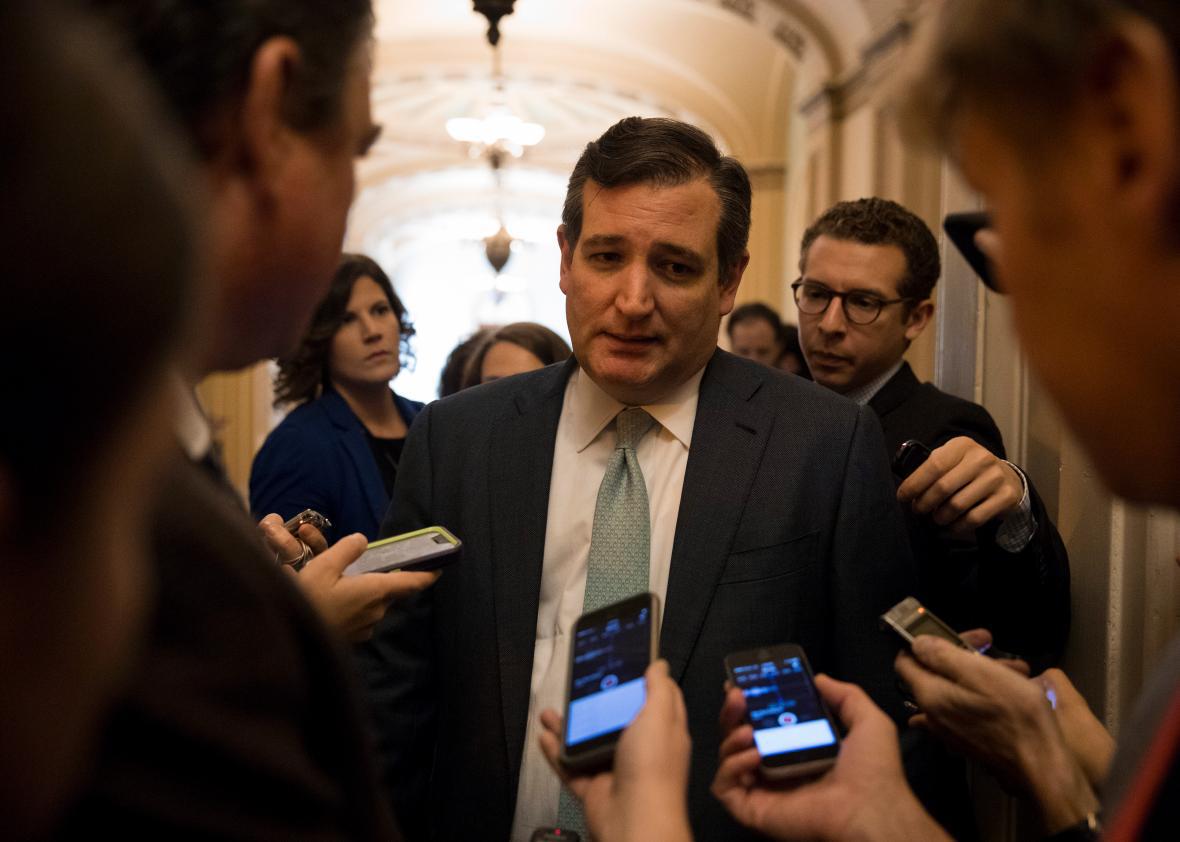One of the key reasons Senate Republicans have not been able to reach a health care compromise is that they can’t agree about what to do with Obamacare’s insurance market regulations. Conservatives, like Sen. Mike Lee of Utah, want to let states junk all of them in order to make coverage cheaper for healthy adults. Moderates, meanwhile, don’t want to be blamed for eliminating highly popular consumer protections, such as the rules that prevent insurers from discriminating against Americans with pre-existing conditions.
Into this divide steps Ted Cruz, who has proposed a compromise that might let Republicans finally bridge their differences. As Vox’s Dylan Scott describes it: “As long as a health [insurer] offered at least one Obamacare-compliant plan in a state, [the insurer] would also be allowed to offer non-Obamacare-compliant plans in that state.” The political logic of this approach is elegant. If you’re sick, you’ll be able to buy a policy with all of the Affordable Care Acts safeguards. If you’re young and hale or just have a high tolerance for risk, you can get something cheaper.
As Kang and Kodos might put it: Obamacare for some, miniature American flags for others!
While the Cruz plan may be politically appealing, it would also be a messy policy with the potential to disadvantage and infuriate many middle-class families.
Under Cruz’s scheme, the individual insurance market would almost certainly split in two. Healthy Americans would flock to inexpensive, unregulated insurance while sicker individuals would choose the Obamacare-compliant plans, likely causing the premiums on those policies to skyrocket. The Obamacare exchanges would effectively turn into expensive high-risk pools.
This would not necessarily be a problem for everybody. Like Obamacare, the Senate proposal offers insurance subsidies to poor and working-class households that cap their monthly premiums as a portion of their income. If you are 40 years old and earn 250 percent of the poverty line, you will owe no more than 8.05 percent of your paycheck toward your coverage; the government picks up the rest.
But that leaves a big question: What happens to people who don’t receive subsidies? In the Senate’s current draft bill, households are only eligible for federal help if they make less than 350 percent of the poverty line. That comes out to $86,400 for a family of four—or barely above the median for a married couple. Many middle-class households don’t qualify and would be stuck paying the full, potentially unaffordably high price for an Obamacare-compliant plan if they ever, say, got cancer. Cruz, for his part, seems to think states will be able to deal with this issue using an insurance market stabilization fund the Senate plans to set aside. “The exchanges have very significant federal subsidies, whether under the tax credits or under the stabilization funds,” he told Scott. But under the GOP’s bill, that pool of money shrinks over time. Maybe it will be enough to make Obamacare-style plans affordable for everybody. Maybe not.
If it failed to do so, though, the Cruz plan would create a rather perverse outcome. Sick Americans would only be guaranteed remotely affordable health coverage if they earned less than 350 percent of the poverty line. Everybody else on the individual market? Tough luck.
There would also be some irony here. Republicans have long complained that Obamacare discourages people from working, because its insurance subsidies cut off sharply at 400 percent of the poverty line. Cruz’s plan creates an even stronger incentive against work, since fewer people would be eligible for subsidies, and those without them could pay steeply higher prices for insurance coverage should they ever become ill. His idea looks a lot like the Obamacare cliff—except the people who tumble off it will fall about 5,000 feet further.
